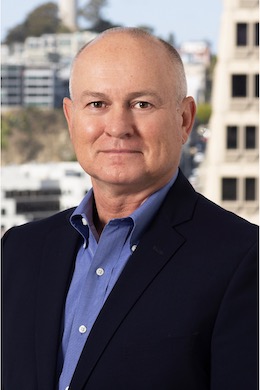Location: San Francisco, California, US
Join the leader in collaborative licensing and help us advance inclusive and efficient new patent licensing approaches. Via Licensing Alliance is dedicated to accelerating global technology adoption, fostering participation, and generating return on innovation with balanced licensing solutions for innovators and manufacturers of all sizes around the globe. Via LA has operated dozens of licensing programs for a variety of technologies consisting of nearly 50,000 patents in over 130 countries with more than 500 patent holders and nearly 10,000 licensees. Via LA is an independently managed company owned by industry-leading participants with over 25 years of intellectual property licensing leadership.
Via LA’s expertise extends to intellectual property, technology standardization, strategic business development, and program administration. Affiliated specialists in the fields of finance, antitrust law, and patent analysis complete the set of capabilities that make Via LA a premier solutions provider to the world’s most sophisticated technology and entertainment companies.
The Senior Managing Director, Patent Pool Programs, role reports to the President of Via LA and is based in San Francisco, California. As Senior Managing Director, Patent Pool Programs, you will be responsible for developing, managing, and overseeing the operations of patent pool programs. This includes facilitation collaboration and negotiation among the participating licensees/licensors to achieve mutually beneficial agreements related to the licensing and use of patents. To excel in this role, strong leadership, negotiation, communication and analytical skills are critical. A deep understanding of IP law, licensing practices and technology trends is also important. Additionally, a strategic mindset, business acumen and the ability to build and maintain relationships with diverse stakeholders are needed for success in the role.
Key Responsibilities
1. Business Development
- Identify new opportunities for patent pools and lead the formation of new programs.
- Actively seek new participants and promote the benefits of joining to relevant patent owners.
- Engage in marketing and business development activities to attract both licensors and licensees
2. Relationship Management
- Build and maintain relationships with participating licensors and licensees.
- Serve as a liaison between patent owners, facilitating communication, addressing concerns, and ensuring alignment of interests.
- Foster a cooperative and collaborative environment among the pool members.
3. Licensing Negotiations
- Lead negotiations with potential licensors and critical licensees, working closely with legal, sales and technical teams.
4. Pool Administration
- Oversee the overall administration of patent pools, including establishing and maintaining the pool’s organizational structure, legal framework, and operational procedures.
- Establish the necessary agreements, governance mechanisms, and compliance protocols.
- Collaborate with Via LA teams, including accounting, IT, compliance, legal, and other internal stakeholders, to assure pool programs operate according to procedures and requirements.
5. Intellectual Property Strategy
- Develop and implement an effective intellectual property (IP) strategy.
- Evaluate patent portfolios, identifying opportunities for expansion, and providing guidance on patent development and management to participating patent owners to maximize the pool’s value.
6. Legal and Regulatory Compliance
- Stay abreast of relevant intellectual property laws, regulations, and licensing practices.
- Ensure compliance with applicable legal requirements, antitrust regulations, and industry standards to avoid any legal or ethical issues.
7. Monitoring and Reporting
- Monitor and report on pool performance, financials, and licensing activities.
- Track revenue streams, analyze market trends, and present reports to stakeholders, including pool members, management, and external partners.
Qualifications and Skills
- Degree from an accredited law school, along with active bar membership, preferred but not required.
- Substantial experience with patent licensing and multi-party contract negotiation. Experience with patent pools preferred but not required.
- Excellent analytical, problem-solving, and decision-making abilities.
- Strong communication and interpersonal skills, with the ability to collaborate effectively with internal stakeholders and external partners.
- Demonstrated ability to work in a fast-paced environment, multitask, and prioritize effectively.
The San Francisco/Bay Area base salary range for this full-time position is $270,000 – $335,000 and can vary if outside of this location. Our salary ranges are determined by role, level, and location. Within the range, individual pay is determined by work location and additional factors, including job-related skills, competencies, experience, market demands, internal parity, and relevant education or training. Your recruiter can share more about the specific salary range and perks and benefits for your location during the hiring process.
Via LA will consider qualified applicants with criminal histories in a manner consistent with the requirements of San Francisco Police Code, Article 49, and Administrative Code, Article 12.
Equal Employment Opportunity:
Via LA is proud to be an equal opportunity employer. Our success depends on the combined skills and talents of all our employees. We are committed to making employment decisions without regard to race, religious creed, color, age, sex, sexual orientation, gender identity, national origin, religion, marital status, family status, medical condition, disability, military service, pregnancy, childbirth and related medical conditions or any other classification protected by federal, state, and local laws and ordinances.
To Apply:
Please submit your resume to Careers@Via-LA.com, or apply via LinkedIn here.











